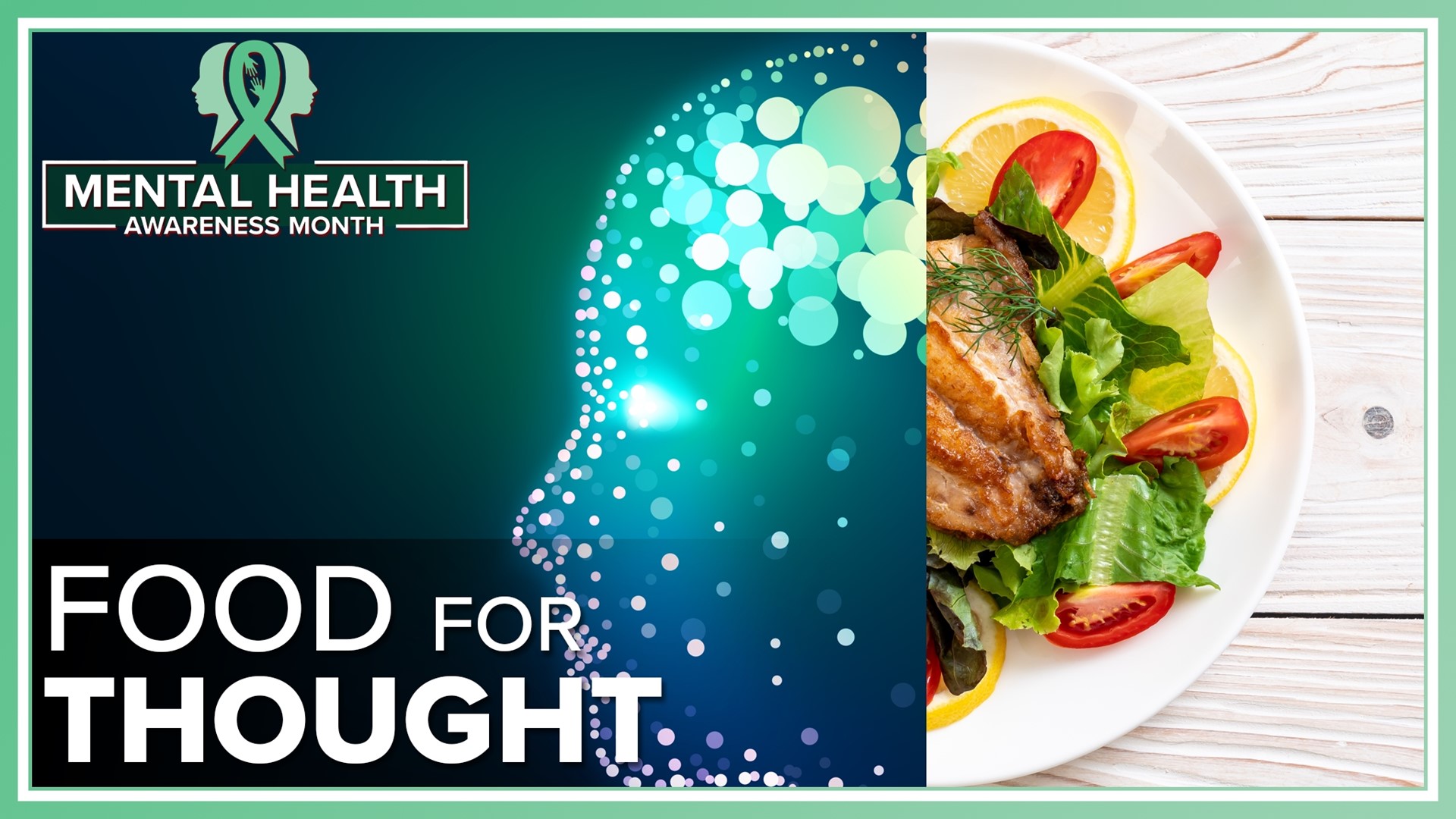HUNTSVILLE, Ala. — Food can be considered a medicine for the body. Oakwood University Nutrition and Dietetics Department Chair and Professor Dr. Sherine Brown-Fraser said when it comes to the real impact that food has on our mental health here's one thing you should know. "Whatever we consume on our plates in our fork actually translates to the chemical structure and metabolism in our brain." In other words, "... whatever we eat obviously becomes our energy and actually eventually contributes to the nutrients that our bodies need, and all organs are affected, including our brain."
Renya Whigham said her journey to living a healthy lifestyle has been just that ... a true journey. "To keep the nutritional value of the foods that you eat, you can't overcook it. If you want to make sure that you keep the health benefits of the foods," Whigham demonstrated. "This is me... well, about 2000, 2001 after, a few years after having a child. I've had back issues since 2004, and that was one of the things that the doctor told me. He says, you know, you might lose 20 or 30 pounds," she explained.
In the fall of 2021 Whigham took him up on that by focusing more on foods that benefit her body versus foods that just pleased her. As a result,"... feeling better physically, you know, helped me to feel better mentally."
Dr. Brown-Fraser says that food is amazing and does a lot of things that are often underestimated. "But in the context of mental health, I want to just paint a picture. Mental health effects about 20% of Americans. Ten years ago, it wasn't quite so high. So, we've seen this is according to the CDC, we've seen an increase in mental health." There are many variables that play a role in that. However, our brain is sometimes the often forgotten about organ. "But it is a very soft, almost a curd tofu-ish type of feeling organ. It's 80, almost 70% water, but it actually is close to 60% fat. And why am I mentioning this? We often tend to run away from fats, but fats are, good fats are fantastic for the brain."
So, whatever we consume has an impact on our neurotransmitters. And according to Dr. Brown-Fraser, neurotransmitters is a fancy term for, "... the chemical messengers within our brains. What we eat has an impact on inflammation and how that can also adversely or positively impact our brain. So, food plays a role in creating the nutrients that transmit through the blood, that actually feeds the brain, and helps the brain to either function optimally or not so optimally."
Whigham believes as we age, we all have a desire to feel better, and that's why she has also started motivating others on her personal Facebook page. "I just try to motivate people to just start somewhere. Don't necessarily do what I do. These are just suggestions, that it doesn't have to be expensive. It doesn't have to be hard."
Dr. Brown-Fraser leaves one last piece of advice for everyone, which is listen to your body after you eat. "Even if you make no other change other than making sure that there are more bright colored live foods on your plate. what will happen is when you add, subtraction actually happens, and you will see a huge benefits in your, in your mood and your emotions as well as even I would say, ones I would even dare say mental health, because again food is fuel."

